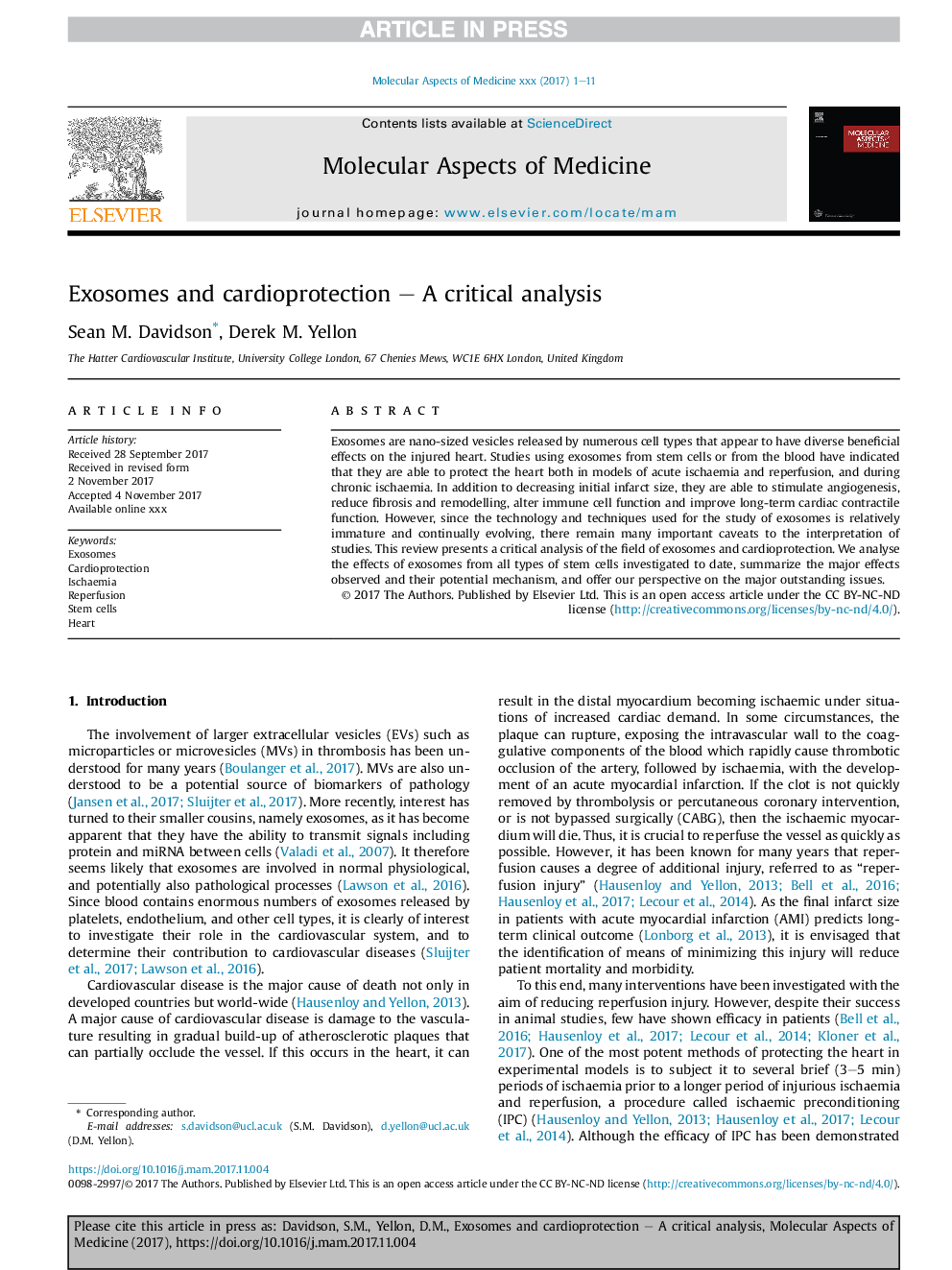| Article ID | Journal | Published Year | Pages | File Type |
|---|---|---|---|---|
| 8341423 | Molecular Aspects of Medicine | 2018 | 11 Pages |
Abstract
Exosomes are nano-sized vesicles released by numerous cell types that appear to have diverse beneficial effects on the injured heart. Studies using exosomes from stem cells or from the blood have indicated that they are able to protect the heart both in models of acute ischaemia and reperfusion, and during chronic ischaemia. In addition to decreasing initial infarct size, they are able to stimulate angiogenesis, reduce fibrosis and remodelling, alter immune cell function and improve long-term cardiac contractile function. However, since the technology and techniques used for the study of exosomes is relatively immature and continually evolving, there remain many important caveats to the interpretation of studies. This review presents a critical analysis of the field of exosomes and cardioprotection. We analyse the effects of exosomes from all types of stem cells investigated to date, summarize the major effects observed and their potential mechanism, and offer our perspective on the major outstanding issues.
Related Topics
Life Sciences
Biochemistry, Genetics and Molecular Biology
Biochemistry
Authors
Sean M. Davidson, Derek M. Yellon,
